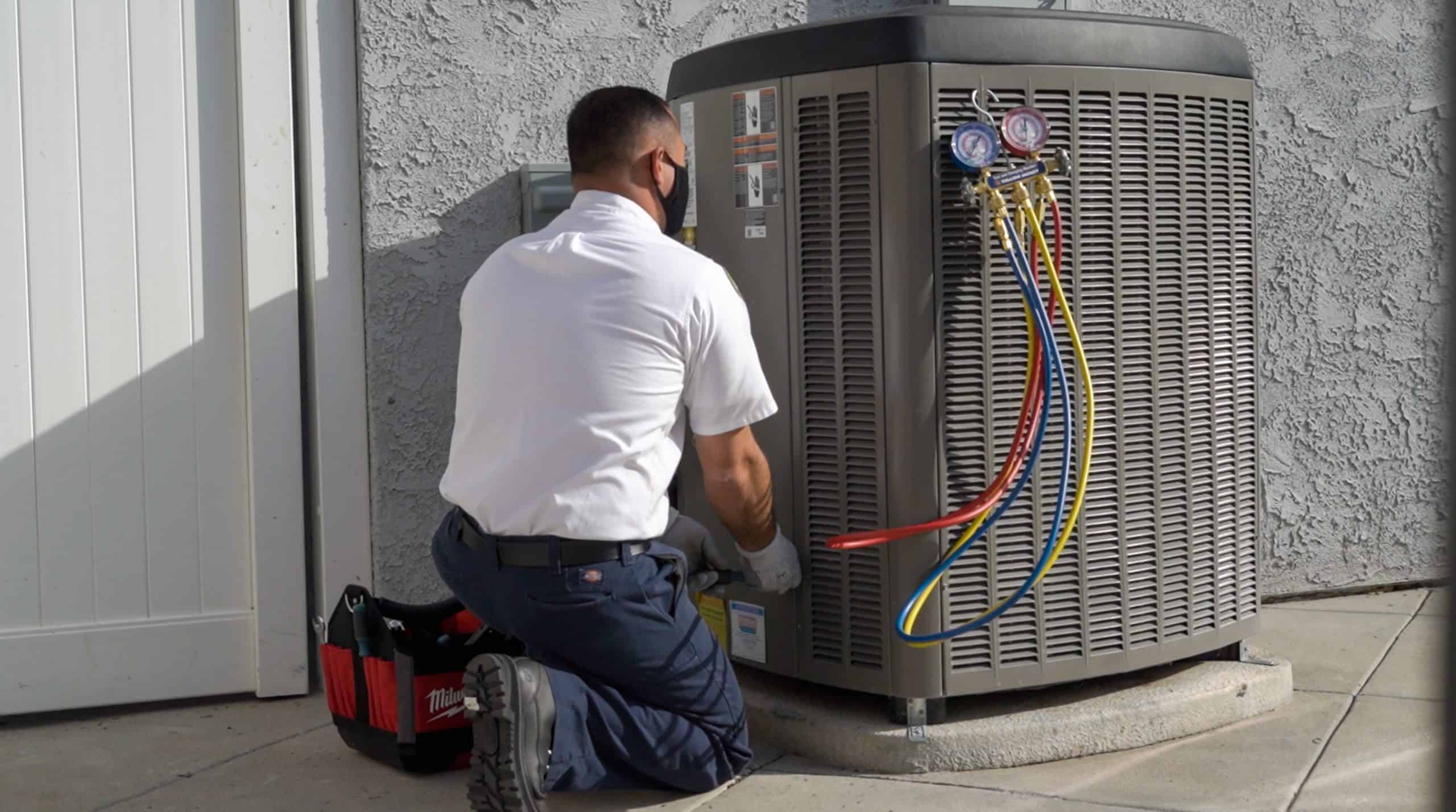Residential and Commercial HVAC Services by DMAKS HVAC Team.
Residential and Commercial HVAC Services by DMAKS HVAC Team.
Blog Article
Energy-Efficient HVAC Equipments to Save on Utility Expenses
As power expenses remain to climb, the relevance of energy-efficient a/c systems ends up being significantly apparent. These systems not just promise considerable cost savings on energy expenses however additionally add to a more sustainable future by decreasing power consumption. With various alternatives available, consisting of geothermal warm pumps and ductless mini-splits, building proprietors face a multitude of selections that can boost convenience and air quality. Nonetheless, comprehending the vital attributes and upkeep demands is vital to taking full advantage of these advantages. What aspects should be prioritized when picking the appropriate system for your needs?
Advantages of Energy-Efficient HVAC Equipments
Energy-efficient Heating and cooling systems offer countless benefits that extend past mere price savings. By consuming less power, these systems contribute to reduce greenhouse gas emissions, helping to deal with environment change and advertise sustainability.
In addition, energy-efficient cooling and heating systems often offer enhanced convenience levels. A number of these systems feature sophisticated modern technology that permits for much better temperature control and enhanced air quality (DMAKS HVAC). This brings about a healthier indoor atmosphere, which is especially important for individuals with allergies or breathing problems
Additionally, spending in energy-efficient HVAC systems can enhance building worth. As more consumers focus on energy efficiency, homes and buildings equipped with these systems may bring in greater bids in the property market.
Types of Energy-Efficient A/c Options
How can house owners and organizations pick the most ideal energy-efficient HVAC choices for their needs? The market provides a variety of energy-efficient HVAC systems, each made to improve convenience while reducing power consumption.
One alternative is the variable cooling agent circulation (VRF) system, which effectively controls the temperature in numerous areas within a building. This system adapts its refrigerant flow to match the desired temperature, causing considerable power cost savings.
An additional prominent choice is geothermal heatpump, which utilize the earth's stable temperature level to warm and amazing rooms. By moving warmth to and from the ground, these systems demonstrate excellent effectiveness, especially in moderate environments.
In addition, ductless mini-split systems provide an energy-efficient option for homes doing not have ductwork. These systems enable for zone-specific home heating and cooling, decreasing energy waste in vacant locations.
Last but not least, high-efficiency heaters and a/c, with advanced SEER and AFUE scores, supply dependable climate control while eating much less energy than standard models. By assessing these choices, home owners and services can choose a heating and cooling system customized to their specific needs and power efficiency goals.
Secret Features to Think About

Next, investigate the kind of compressor used in the system. DMAKS HVAC. Variable-speed compressors can readjust their outcome to match the home heating or cooling demand, bring about improved comfort and power cost savings view website compared to single-speed designs. In addition, search for systems outfitted with clever thermostats that supply programmable settings and remote accessibility, enabling better control over energy intake
Another important feature is the system's air purification ability. High-efficiency filters can enhance indoor air top quality and minimize power consumption by ensuring the system operates successfully. Moreover, consider the kind of cooling agent made use of; modern systems usually utilize green refrigerants that have a lower ecological impact.
Lastly, make certain that the system works with zoning technology, which enables for personalized temperature level control in various areas of your home, boosting comfort while decreasing power usage.
Tips for Selecting the Right System


Following, consider energy performance ratings, particularly the Seasonal Power Effectiveness Ratio (SEER) for cooling down systems and the Yearly Fuel Utilization Performance (AFUE) for heating unit. Higher ratings indicate better performance, which can bring about considerable financial savings on utility expenses in time.
In addition, examine the kind of a/c system that ideal fits your way of living and budget. Alternatives include air conditioning, ductless mini-splits, and heatpump, each with its own set of advantages and drawbacks.
Don't ignore the importance of proper setup and sizing; an incorrectly sized system can cause inefficiencies and enhanced wear. Lastly, seek advice from a specialist a/c contractor to get expert recommendations tailored to your home's distinct requirements. This detailed technique will certainly guarantee that you select an energy-efficient cooling and heating system that satisfies your requirements and budget efficiently.
Maintenance for Ideal Effectiveness
When the ideal HVAC system is in location, recurring upkeep ends up being vital to making sure ideal effectiveness and durability. A well-maintained system runs better, resulting in reduced energy consumption and decreased utility bills. Normal evaluations and tune-ups must be set up at the very least twice a year-- once before the cooling season and once prior to the home heating season.

Homeowners ought to additionally be attentive concerning checking their cooling and heating system's efficiency. Unusual sounds, changing temperature levels, or increased energy bills can suggest underlying problems that require immediate attention. By addressing these worries promptly, property owners can prevent expensive fixings and extend the life-span of their systems.
Buying an upkeep plan with a qualified service technician not only boosts efficiency however likewise offers comfort, knowing that the system is operating at its best. DMAKS HVAC. Routine upkeep is for that reason necessary for sustaining power efficiency and reducing total operational expenses
Verdict
In conclusion, energy-efficient cooling and heating systems provide a practical option for decreasing energy expenses while improving convenience and air top quality. By including innovative innovations and choices such as geothermal warmth pumps and ductless mini-splits, residential or commercial property proprietors can achieve substantial energy cost savings and contribute to ecological sustainability. Cautious factor to consider of system functions and continuous upkeep additionally makes sure optimal performance, making energy-efficient systems a sensible investment for both economic and environmental advantages.
Report this page